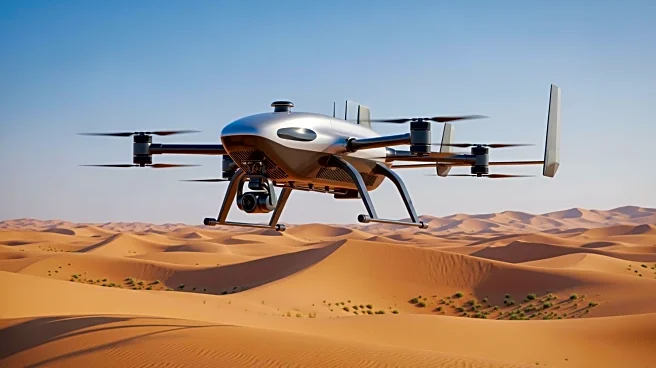What's Happening?
Etihad Airways is set to begin testing autonomous cargo aircraft in the United Arab Emirates. The trial involves Lodd's freight-carrying drone technology, marking a significant step in the airline's exploration
of unmanned aerial vehicles for cargo transport. This initiative is part of Etihad's broader strategy to enhance its cargo operations and explore innovative solutions for efficient freight transportation.
Why It's Important?
The trial of autonomous cargo aircraft by Etihad Airways represents a potential shift in the logistics and transportation industry. If successful, it could lead to increased efficiency and reduced costs in cargo operations, benefiting businesses and consumers alike. The use of drones for cargo transport could also reduce the environmental impact of traditional freight methods, aligning with global sustainability goals. This development may influence other airlines and logistics companies to explore similar technologies.
What's Next?
Following the trial, Etihad Airways may consider expanding the use of autonomous cargo aircraft across its operations, potentially leading to broader adoption of drone technology in the logistics sector. Regulatory bodies and industry stakeholders will likely monitor the trial's outcomes to assess the feasibility and safety of integrating drones into commercial cargo operations.
Beyond the Headlines
The use of autonomous drones for cargo transport raises questions about regulatory frameworks and airspace management. As technology advances, there will be a need for updated policies to ensure safe and efficient integration of drones into existing air traffic systems. This trial could serve as a catalyst for discussions on the future of unmanned aerial vehicles in commercial aviation.










